Personal Hygiene, Health And Cleanliness Tips For Grade 3
This is a comprehensive lesson plan for teaching Cleanliness, Health and Hygiene to grade 3 students. The lesson is designed to make the concepts easy and engage students with activities like quizzes, practice questions, and real-life examples.
Teachers can use this guide as a reference for delivering the concepts to students and engaging them in the classroom with the various questions and examples given in this page.
In this article, you will learn:
- personal hygiene and it's importance
- ways to keep our body parts clean
- taking care of our body
- inportance of cleanliness in our surroundings
- causes of unhealthy surroundings
- ways to keep our surroundings clean
Cleanliness, health, and hygiene: Introduction
Cleanliness, health, and hygiene form the essential parts of our lives. Taking care of ourselves and remaining clean keeps us healthy and happy. It further saves us from diseases. So, let's move forward to learning more about personal hygiene, the care of bodies, cleanliness around, and a lot more in this article.
Personal Hygiene And Its Importance
Personal hygiene means keeping our bodies clean and fresh.
Some examples of personal hygiene are:
- Brushing teeth twice in a day
- Bathing yourself every day
- Hand washing before eating and after going to the toilet
Why is it so Important?
- It keeps germs away.
- It makes us feel good and smell fresh.
- It prevents diseases like colds and stomach infections.
Ways To Keep Our Body Parts Clean
We have to clean various parts of our body like hands, legs, eyes, ears, teeth, and hair to become healthy and hygienic.
Hands:
- Our hands touch millions of things. If we touch our eyes, mouth, or food by unwashed hands, we can get sick because germs can enter into our body.
- Please ask your elder to cut your nails every week.
- Wash your hands before and after eating, after playing, after using public transport, after touching pets, and after using the toilet.
- Rub your hands clean with soap and warm water for at least 10-15 seconds.
- Clean every side of the hands, the areas between the fingers, and your wrists.
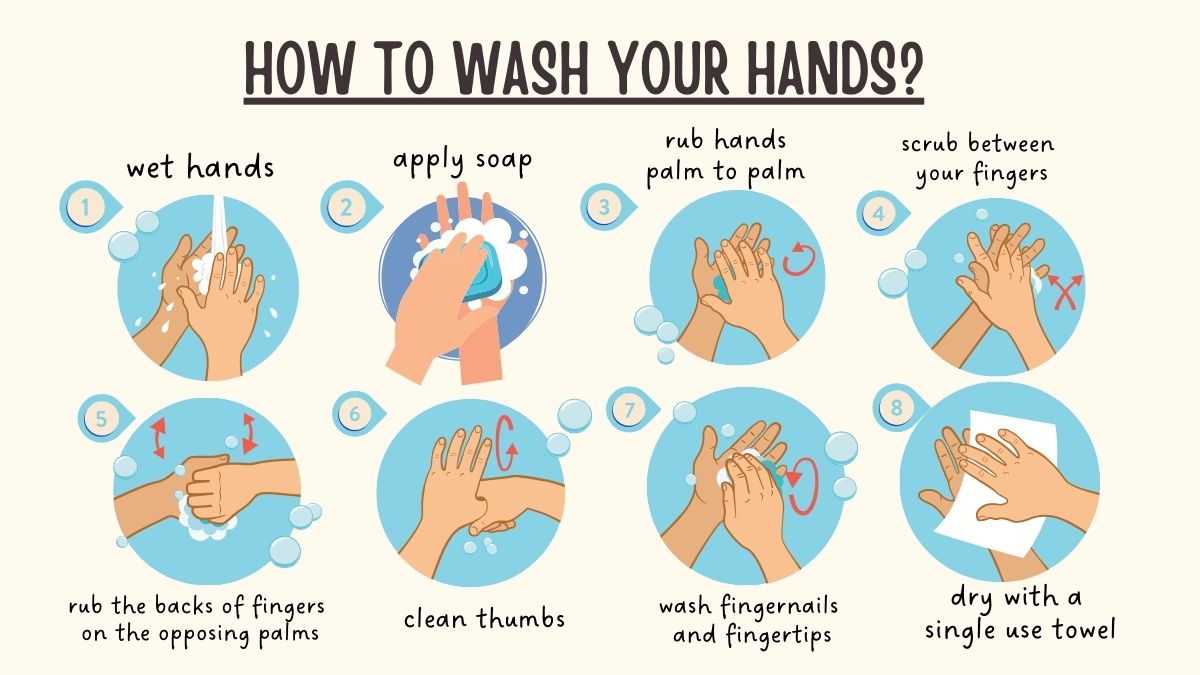
Eyes:
Our eyes help us see, and they are very sensitive.
- Always wash your hands before touching your eyes.
- To clean your eyes, splash them gently with clean water.
Ears:
- Our ears help us hear sounds.
- You can clean the outer ear with water and soap, ensuring no water enters your ear.
- Do not insert a pointed or small thing in your ear, such as a hairpin.
Hair:
- Hair becomes dirty faster than the entire body.
- Wash your hair with a gentle shampoo and comb it neatly with a clean comb.
Teeth:
- Teeth are what assist us in breaking our food into smaller portions to chew and swallow. Small pieces of our food may also get stuck between our teeth.
- Brush twice a day: In the morning, and before bed at night to keep your teeth clean and healthy.
Body:
- We should bathe every day with soap and water to clean our bodies.
- Bathing helps remove dirt and keeps our skin healthy, preventing skin problems.
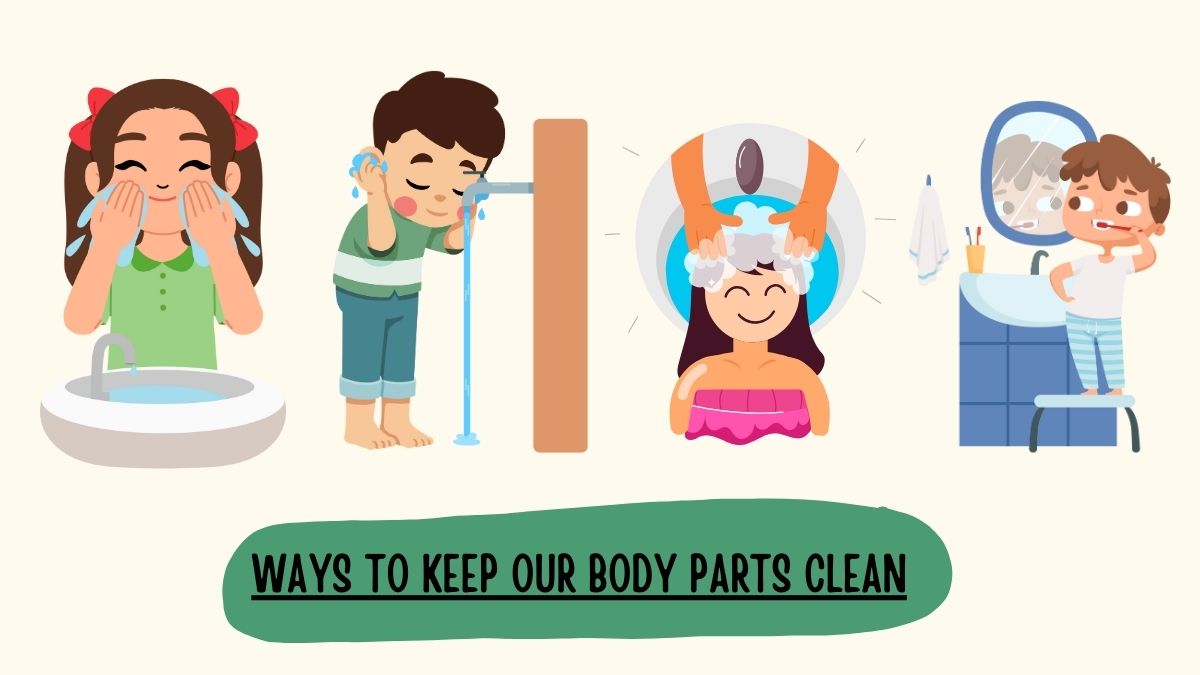
Taking care of our body
1. A healthy mind lives in a healthy body.
2. A healthy body does not fall sick quite often.
3. We should develop the following habits and activities to maintain a healthy body.
4. Eating healthy food:
- We should eat all our meals (breakfast, lunch, and dinner) at the right time and never skip a meal.
- You can have healthy snacks between meals.
- It's important to eat a variety of fruits and vegetables in every meal.
- Avoid having roadside food stalls as their food may not be clean.
- Water intake must be at least 6-8 glasses each day to keep hydrated.
5. Exercise routine:
- Physical exercise keeps our body fit and strong.
- It gives strength to our muscles and bones and makes us healthy and light.
- Children should also have running, skipping, cycling, or swimming activities for healthy and brisk activity.
6. Getting enough sleep:
- Our body needs enough rest to stay healthy.
- We should sleep for 8 hours every night to help our body work well.
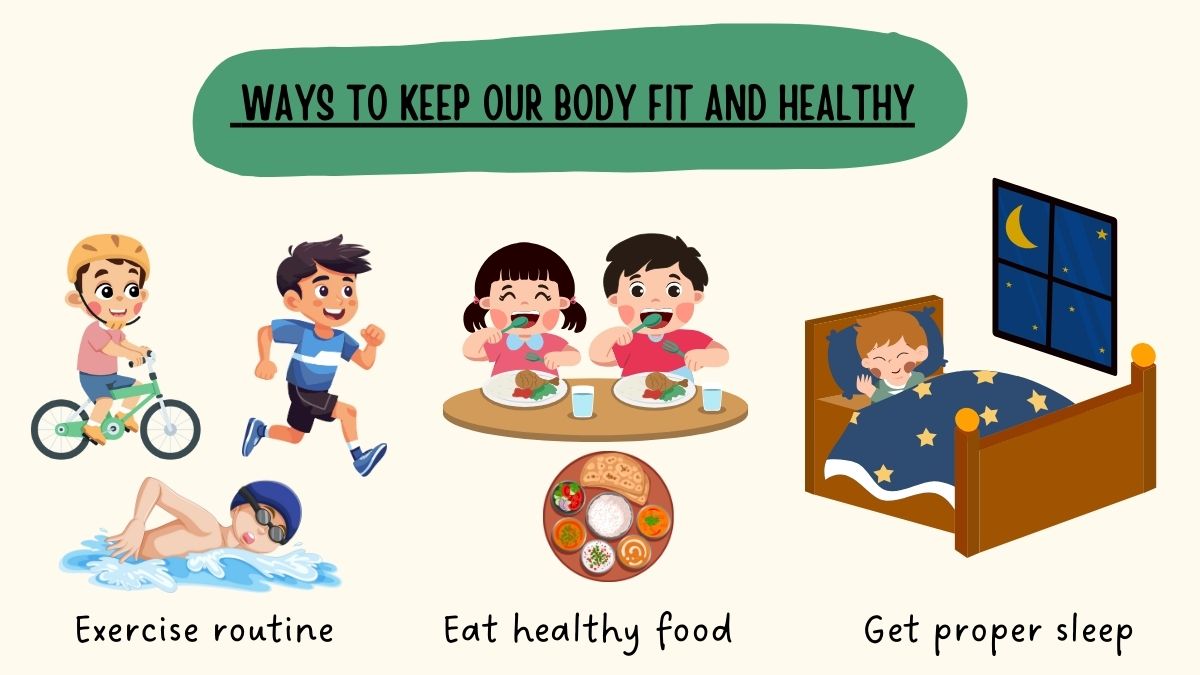
Importance of cleanliness in the surroundings
- Everything that surrounds or is around us is our surroundings.
- It is our responsibility to be kept clean in order to inhale fresh air, clean water, and so on, with other things that are necessary to maintain our health.
- When our environment is dirty, flies, mosquitoes, and other insects breed there and cause diseases.
- A dirty environment results in bad smells, blocks flow of fresh air, and causes clogging of drains.
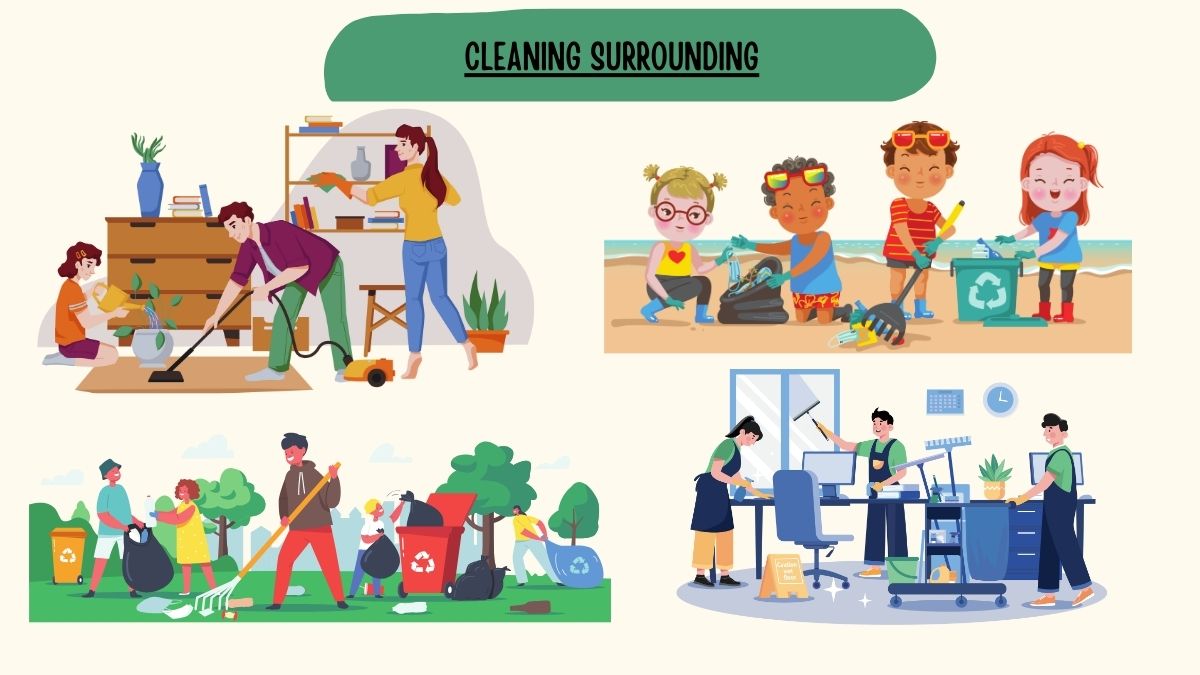
Causes Of Unhealthy Surroundings
When we don't follow cleanliness rules, our surroundings become dirty and polluted.
The following activities make our surroundings unhealthy:
- Throwing garbage in open spaces attract flies and pests, which spread diseases in the neighborhood.
- Spitting, urinating, and defecating in open areas help the germs responsible for diseases grow.
- Using a lot of plastic bags and just throwing them anywhere is one major cause of pollution. It also blocks the drains.
- Stagnant water breeds mosquitoes that cause diseases like malaria and dengue.
Ways to Keep the Surroundings Clean
Everyone wants to live in a clean environment. We need to adopt a few habits to maintain a clean and healthy environment around us.
- We should throw our household wastes in the dustbins and not in the open.
- All wet garbage, like vegetable peels, leftover food, etc. should be disposed into a pit where it can get rotten and be converted into manure, which can be used for gardening.
- We should reduce the usage of plastic bags and promote use of paper and cloth bags.
- Do not throw the trash into the drain, so that drains may not get blocked.
- We should increase the number of trees in our surroundings.
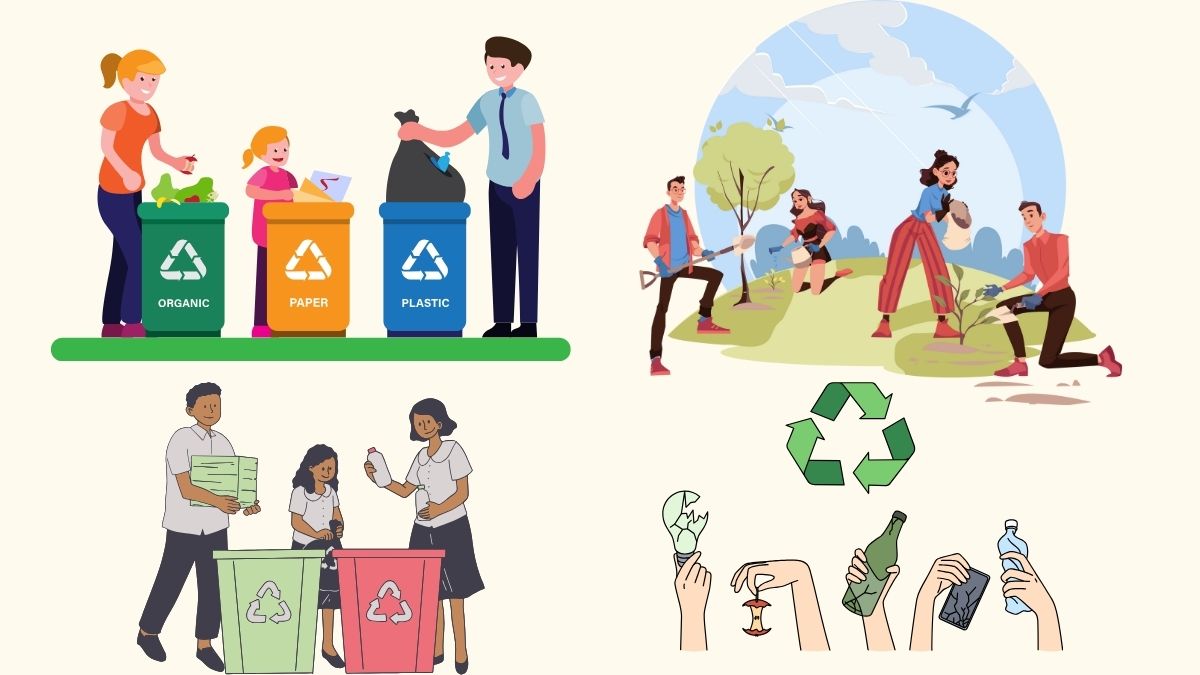
Fun Facts
- Longest Handwashing Record: People in Bangaldesh set a world record by having 7,000 people wash their hands at the same time.
- Toothpaste was once made of charcoal and honey.
- Our body is 70% water.
- Drinking water not only keeps you healthy but also helps flush out toxins from our body.
Things you have learned!
- Personal hygiene keeps us clean, fresh, and free from diseases.
- Taking care of ourselves by washing hands, brushing our teeth, and bathing daily is important.
- Eating healthy food, drinking water, exercising, and sleeping well help us stay strong.
- Clean surroundings prevent diseases and keep the air and water fresh.
- Good habits like using dustbins and reducing plastic waste help keep the environment clean.

